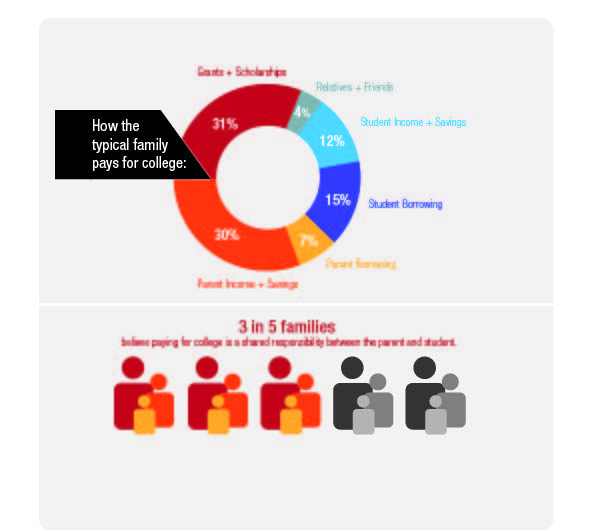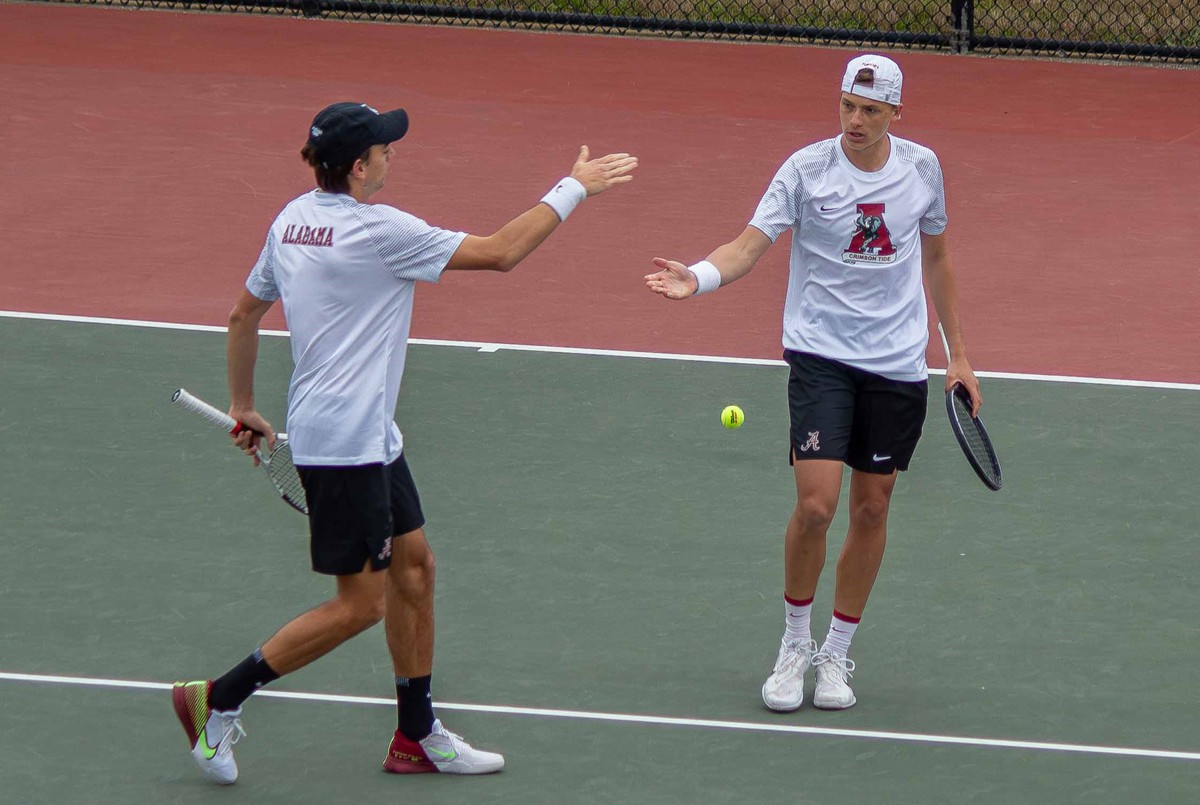Garmon, a senior majoring in health management, is working toward her dream of being a health administrator at the Centers for Disease Control and Prevention. Working 40 hours a week, Garmon is just one of several UA students who are paying their way through college.
“It’s hard, but I enjoy having my own money and being able to spend it,” she said. “It’s a lot of convincing yourself that you can do it. It’s about waking up in the morning and telling yourself, you have this many days left. I’ve known how many days until graduation since I was a freshman.”
Jameka Hartley is the coordinator for Alabama REACH, a program that supports youth in foster care and often works with students who don’t have the traditional family support many college students have. One of the biggest challenges Hartley said students face is trying to find financial support.
“A lot of my students are worried about money because a parent plus loan is only something you can get when you have parents involved,” she said. “It’s a big source that a lot of students can tap into that my students can’t.”
Working through school can be challenging, she said, because it can feel like a very isolating experience. Hartley said some students can feel like they are alone in their problems, but there are many other students going through the same challenges. Hartley said she tries to work with her students to ease some of their struggles.
“If there’s scholarships I know about, we try to connect them with that,” she said. “For our REACH students, we have a pantry that has nonperishable food items and school supplies. We try to help them find student organizations to connect them with.”
During her freshman year, Garmon started off as a Rite Aid cashier before transitioning to the pharmacy as a technician, where she fills prescriptions, files information and counts medication. She became so efficient at figuring out insurance issues that her coworkers affectionally dubbed her the “Insurance Queen.”
After deciding to become a nationally certified pharmacy technician, Garmon began studying for the Pharmacy Technician Certification test, which costs $129 but gave her a $1 hourly raise. The choice helped her obtain a leadership role where she trains other employees, giving her experience for her future career in health management.
Garmon said she pays her way through school through a mixture of scholarships, loans and working. Garmon goes to class in the mornings, then works in the afternoons and on weekends. She said she doesn’t have much free time because any gaps in her schedule are usually filled with homework and studying.
“My free time is very limited,” she said. “A lot of my free time is going to eat with friends for an hour, then I’ll go home and finish whatever I need to do. It’s very hard to have friends who don’t work or work very little. Sometimes it gets really frustrating, but I know I’m doing something good for myself. It’ll pay off in the long run.”
Dontavius Wade, another student working his way through school, said he dreams of owning a successful business one day. As a black male, he said he sees a wealth gap, especially among minorities, in America and wants to be an inspiration for future generations.
“I want to be a reflection of my race, my family and the University,” he said. “We all have a story. I try to inspire people. If I can do it, anyone else can do it.”
Wade, a senior majoring in public relations, spends 20 hours split between working as an office assistant in Clark Hall and as a supervisor at the Student Recreation Center. Wade said he likes the variety in his two jobs. At Clark Hall, he answers phone calls, makes copies, files papers and delivers packages, but at the Rec Center he manages the whole building, assigning tasks to student workers and making cash transactions.
Working during school limits the time Wade can spend on other activities. He said when he gets off work in the afternoon, he goes to the library to study, leaving him very little time for a social life. Despite this, he said working as a student employee is better than having a traditional job because it’s more flexible.
“Because it’s on campus, I have time to go to the library or eat lunch before I come to work,” he said. “Being a student worker is more beneficial because it’s not as strenuous. You have time to chill out sometimes. It’s way better than working fast food.”
Garmon said it’s a constant struggle to wake up in the morning, knowing her friends get to sleep in, but having her own money makes her feel grown up and responsible.
Working through college requires knowing how to budget. Garmon said one of the hardest things for her is saving money and being aware of how much she has left in her bank account.
When budgeting, Wade tries to make sure he has enough money to cover his bills and necessities first. He said if he wants to go on a weekend trip, he has to plan months in advance.
“I think everyone should have [a] planner,” Wade said. “I mean a big one, not a little cute one. Having a planner is key to staying on task. You know the right thing to do, but you’re in a college town. Naturally, when you get a job, you want to get nicer clothes and want to do things. Maybe, if I go out this week, I can recuperate my budget next week.”
Hartley said students working their way through school are at an advantage because they learn how to manage their time more appropriately. Work forces them to schedule their time wisely and instills an internal drive to perform because of the lack of a safety net.
“If they truly want to have a degree, they will figure out a way to finish it,” she said. “I think it’s one thing to get here, but it’s another thing to stay here, perform well and graduate. If you put it in your mind that this is what you’re going to do, you’ll find a way to get it done.”
Christa Morris, the Culverhouse scholarship director, said employment is beneficial because it is a learning experience. Over the years, she said, she’s experienced new challenges and learned from every job she’s held.
Morris said one of the joys of her job is interacting with college students. She said the university offers many great scholarships geared toward assisting students through college. Morris said students’ work experience and community activities translate when they are applying for scholarships because it shows they are active.
“I love students and helping them,” she said. “It’s very moving to tell a student who needed the funds that they’re receiving an award. It’s going to make a difference.”
Since they often don’t have time to cook, Garmon and Wade usually eat their meals on the go, taking cheap frozen meals to their jobs where they can heat them up. Garmon said her friends or her boyfriend sometimes bring her food to work.
“He has a lot of free time, and I don’t have a free time,” she said. “He helps me a lot by picking up the slack on things I can’t take care of because I’m at work or school.”
Garmon, who has taken 18 hours of class every semester, said she’s maintained a 4.0 grade point average in addition to being president of the business organization Phi Beta Lambda.
“I don’t sleep very much. I drink a lot of coffee,” Garmon said. “I’m sure my body will hate me later. I won’t rest until everything is done, so if that means staying up really late, that’s just what I do.”
For Wade, working during college is a trial run at preparing for the real world. Without a safety net, he said he knows he doesn’t have room to fail.
“It teaches you responsibility and makes you appreciate money more,” he said. “If you mess up your paycheck, you don’t have a parent to fall back on.”







